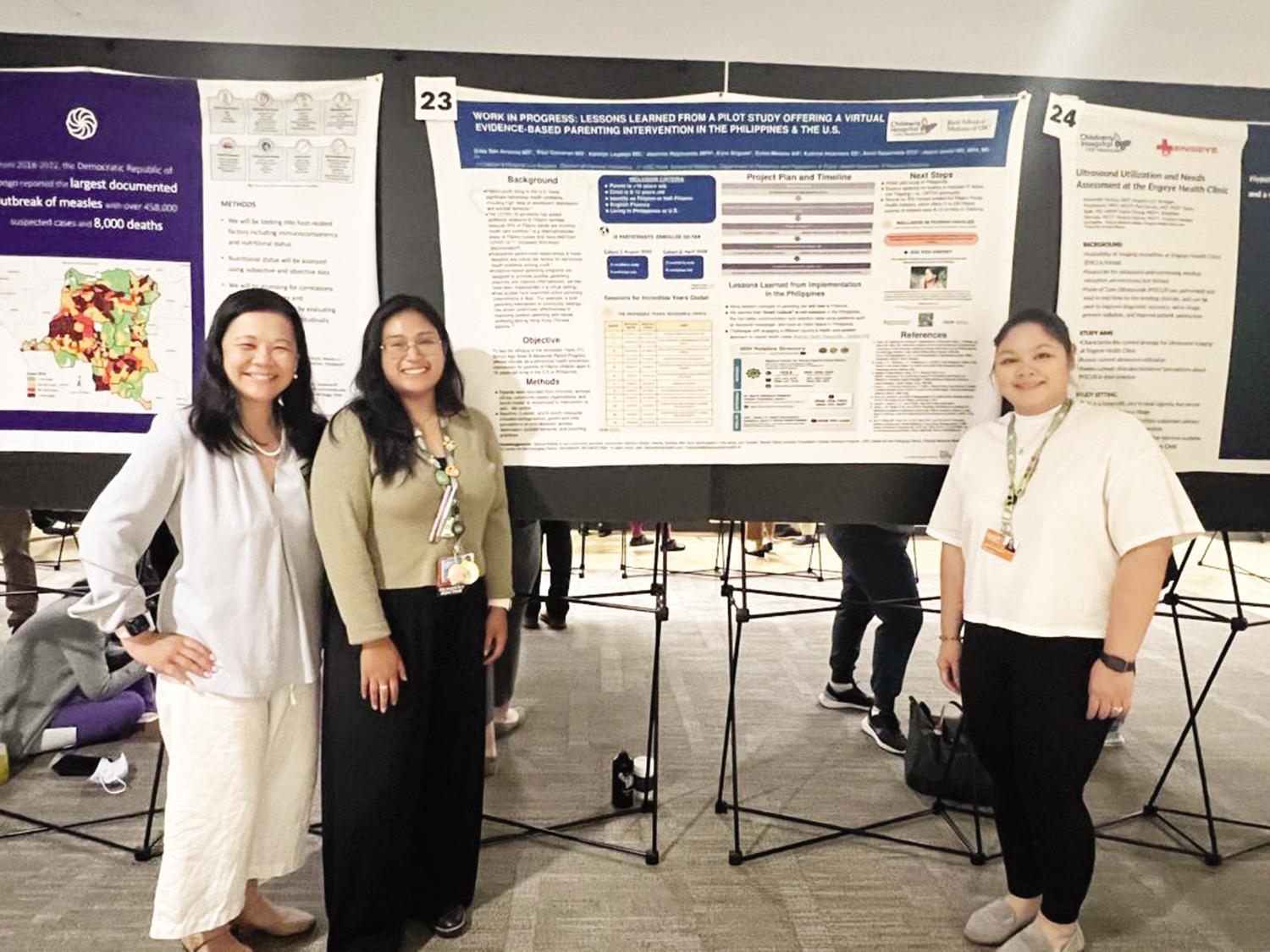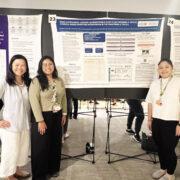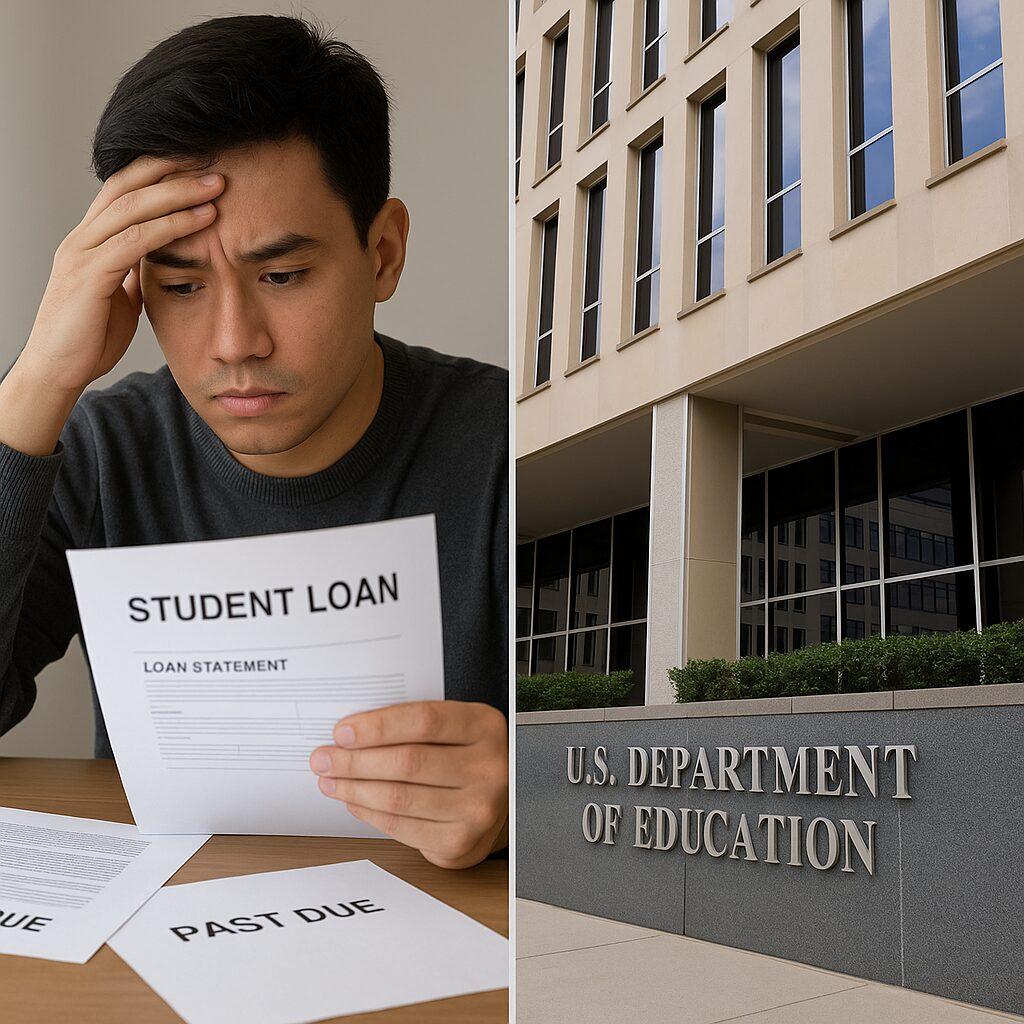
Joyce Javier, MD, MPH, MS, is a pediatrician and physician scientist at Children’s Hospital Los Angeles and Associate Professor of Clinical Pediatrics at the Keck School of Medicine of USC
LOS ANGELES — With mental health awareness among Asian Americans and Pacific Islanders (AAPI) on the rise, more families are more concerned over youth mental and emotional well-being.
A group of researchers based in Los Angeles has been undergoing a comprehensive study that focuses on Filipino family dynamics and parenting.
The Incredible Years is a parenting program within the broader Filipino Family Health Initiative, an extensive research effort to expand understanding of Filipino family dynamics and mental health.
Sitting at the helm of the effort is Should be: Dr. Joyce Javier – physician scientist at Children’s Hospital Los Angeles and Associate Professor of Clinical Pediatrics at the Keck School of Medicine of USC.
On June 13, Javier shared early observations of The Incredible Years program, which offers several workshops for parents that teach them how to better serve their children through social and emotional learning.
In short, the crux of the program encourages parents to adopt communication styles and approaches — like thoughtful conversation, problem solving, and positive affirmations and reinforcements — that limit “discipline-related things such as time out or [other] consequences,” Javier explained.
It also helps parents to foster a home environment where children feel more comfortable to communicate their issues.
Since before the pandemic, the Filipino Family Health Initiative has recruited families from schools, churches, clinics, and community-based organizations (like SIPA) as well as through social media and word of mouth.
Of the 49 initial participants, just less than half of them completed the 12-week Incredible Years program.
“There was an increased use of praise, incentive, setting clear expectations as well as use of positive verbal discipline,” Javier shared. “We also found that the children of parents who participated reported less depression and anxiety symptoms, as well as less internalizing behaviors.”
Javier reported that The Incredible Years program helps address issues early on to cultivate healthy behaviors among children before they reach adolescence.
She said, “What are the things we need to do so that they can have healthy relationships as adults and also so that they are less likely to have mental health issues? The research shows that if they have these positive childhood experiences, we can make this happen.”
The initiative is currently accepting participants for the ongoing study, which offers up to $325 in compensation for each family. Families are eligible if the child is between the ages of 8 and 12 years old, is fluent in English, and the child identifies as Filipino or half-Filipino.
Currently, the program is only accepting families who reside in California.
As the daughter of Filipino parents, Javier shared that she has a personal connection to the initiative. As is the experience of many AAPI children of immigrants, affection and verbal expressions of love weren’t common in her household.
“As I got older, I realized that our family didn’t always show their love through words, but through their actions: working two or three jobs and sacrificing so much to immigrate here,” Javier said, adding that she did not grow up speaking Tagalog.
“In a sense, they sacrificed their own identities so that we could assimilate and blend in,” she explained.
She observed throughout her upbringing and career as a pediatrician that children thrive on community and healthy, active relationships with their parents.
Across all AAPI groups, Filipinos are the only group wherein suicide is the leading cause of death for youth aged 12 to 19.
Moreover, a study from the United States Centers of Disease Control and Prevention (CDC) found that 46% of Filipina high school students shared that they have “seriously considered” killing themselves, and about half of those students have actually attempted.
As Javier pointed out, strained relationships with parents and family as well severe discipline can exacerbate mental and behavioral health issues.
She also cited that societal factors, such as the rise in anti-Asian hate and bullying, have also been proven to be causes of depression and anxiety among AAPI youth.
“I learned in my career and training that there was a way of doing research where we can really partner with communities and develop solutions, together,” she said.
Javier noted that the success of research endeavors like the Filipino Family Health Initiative and The Incredible Years can lead to more investment in culture-specific research — especially that which furthers understanding of AAPI communities.
Journal of the American Medical Association and the paper was in 2019.
Due to the success of the program in California, the team received increased grants to continue the research today, which is also being piloted in the Philippines.
“Without research, we don’t have any resources and we’ve proven that when you offer research to Filipinos — and you explain it and you respect them and partner with them — they will show up, so I think it’s really critical that we continue to show that,” Javier said.
To learn more about The Incredible Years program and the Filipino Family Health Initiative, visit their site here: https://filipinofamilyhealth.com/. (Klarize Medenilla/AJPress)







